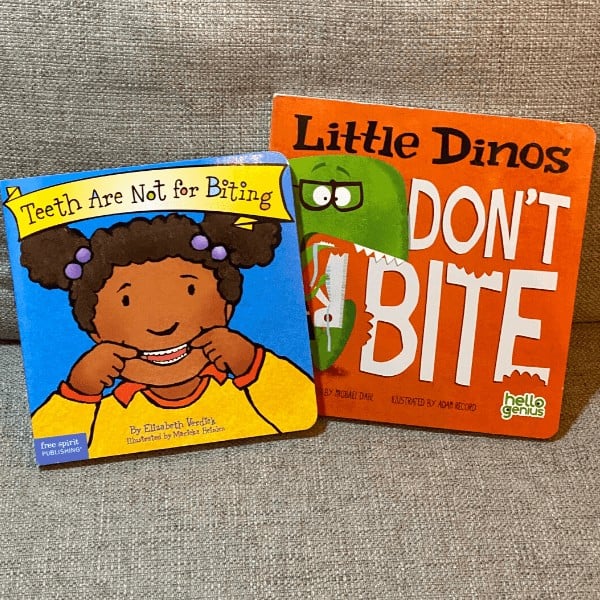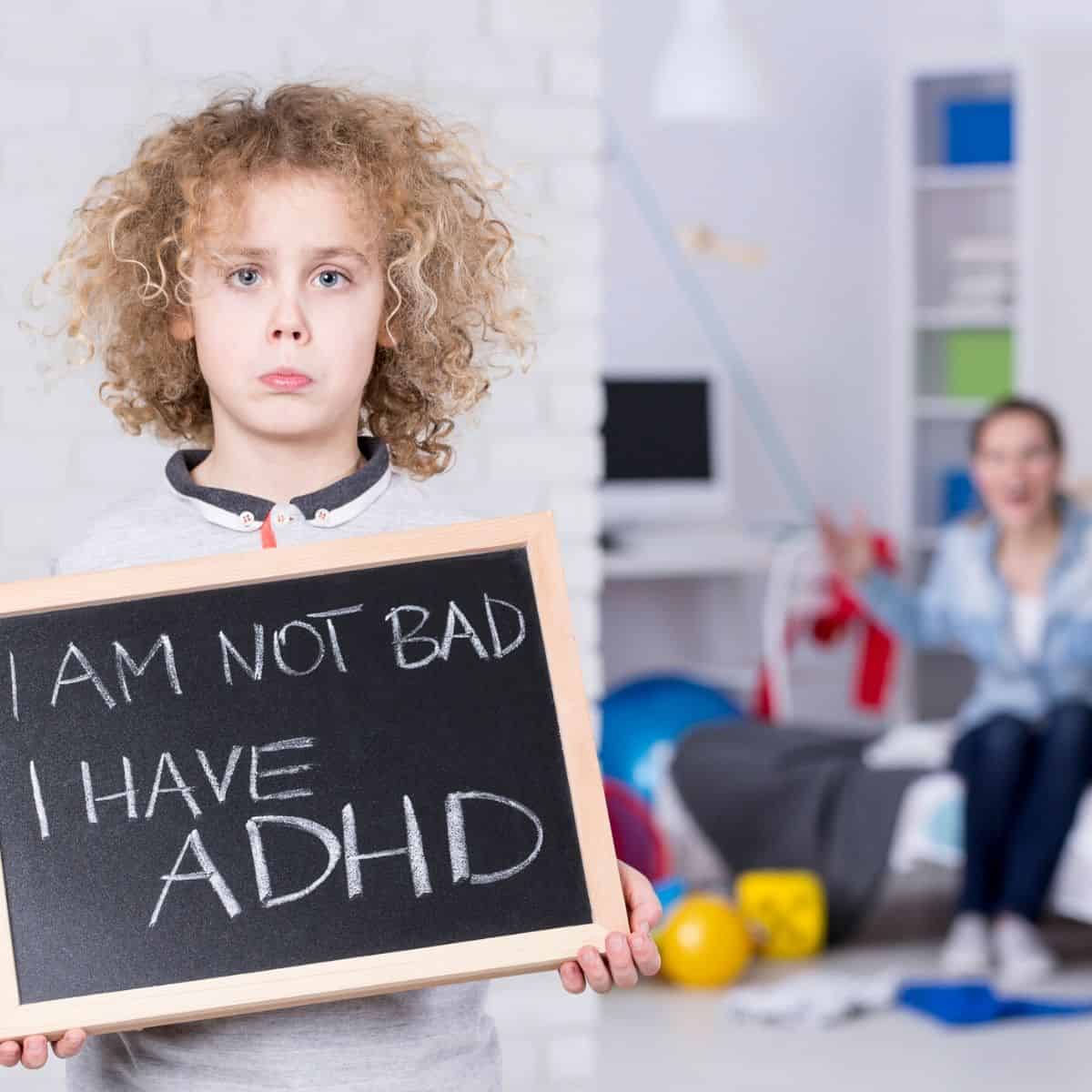Every parent knows those days—the ones where your kid seems out of control and you just want to scream. But even on our kids’ worst days, we always like to believe that there are children out there who create bigger problems than ours. Who kick more, bite more, throw more tantrums, throw more everything. We never want to imagine that our child is the infamous “THAT kid” that everyone talks about.
Here, Tessa tells a powerful story about parenting “that kid,” the empathy we all need to have, and what it’s like parenting a child who was kicked out of preschool.

This site contains affiliate links, meaning that we earn a small commission for purchases made through our site. We only recommend products we personally use, love, or have thoroughly vetted.
Can Kids Get Kicked out of Preschool? “That Kid” Can!
According to studies like one that took place at the Yale Child Study Center in 2005, preschoolers are “more than three times” more likely to be kicked out of school than K-12 students.
If you’re thinking, “That was 2005, things have to be better almost 15 years later,” the answer is sadly, no.
Rates of preschool suspension and expulsion have increased and are most likely to affect non-white boys, students who are English Language Learners (ELL), and students with disabilities.
Everyone wants their child to be in a safe learning environment, but what does safe really mean for our kids?
As parents or guardians, can we reasonably expect the preschool years to be free of developmentally normal things like pushing, biting, or hitting?
Are we expecting too much of our youngest students and labeling them as “problems” or “bad” when they are still in diapers, taking naps, or carrying a lovey to school?
Children who exhibit challenging behaviors are certainly difficult on early educators, but are these high expulsion rates justifiable?
While it is easy for many to dismiss preschool suspensions and expulsions because children are so young, data shows some sobering correlations with preschool disciplinary measures and educational achievement later in life:
“Young students who are expelled or suspended are as much as 10 times more likely to drop out of high school, experience academic failure and grade retention, hold negative school attitudes, and face incarceration than those who are not.”
I hope that my son, who can be called “that kid,” doesn’t become one of those statistics.
But I know he has numerous levels of privilege that many other young children in America don’t have, so he has lots of things working in his favor that most children do not.
Because of his privilege, he has a sort of head start among kids who have been, permanently or temporarily, kicked out of preschool.
Especially given that, likely due to implicit bias within our society, less privileged children are the ones studies show are most likely to be kicked out of preschool.

“That Kid”
So who is “that kid?”
This kid is the one who exhibits behavior problems. THAT kid who does things like…
- pushes
- can’t sit still in circle
- can’t stop climbing on everything
- chews on shirt collars and pencil ends
- won’t stop talking
- yells and roars
- bites
“That kid” that you kind of hope your kid never sits beside or becomes friends with or is in the same class as your kid year after year. Yeah, “that kid.”
Guess what? THAT kid is my kid.
Even as a kindergartener, he still needs daily reminders to use his words. He chews his nails and water bottle straws and half the classroom’s colored pencils.
He sometimes speaks in roar.
But let me tell you a story about the kid. About how loving, tender, social, and emotional he is. He gives the best hugs and wants to say hello to everyone he sees.
He always asks for a second treat for his sister, and he actually remembers to give it to her.
But ever since he was a tiny 18 month old in the toddler room at preschool, he has been “that kid.”
Preschool Expulsion from a Mother’s Perspective
He started biting in the toddler class and kept biting classmates on a regular basis.
While my son did seemed to have his more frequent targets, he also managed to bite several other classmates on multiple occasions, too.
Every time the school number appeared on my phone, my stomach dropped and tears pricked my eyes.
No one wants to get the message from school that another student bit or hit your child. But believe me, it is NOT easy to be the parent on the other side getting the call that your child hurt a classmate.
After having to pick him up early from school several times, he was essentially suspended from preschool midway through his year in the 2-year-old class.
We were told that he was unable to return without a full time “shadow” coming to school with him each day.
In other words, if we hadn’t had the ability to hire someone to accompany him, he would’ve been fully expelled from preschool.
We were overwhelmed, but knew we had to do everything possible to give him the socialization opportunities every child needs and deserves.
Early childhood programs are so important for children and families, and while all children don’t have the benefit of enjoying them, they all deserve it.
What Happens When Parents Can’t Stay Home with Expelled Preschoolers?
My husband and I had so many things in our favor that gave us the freedom to get our child back to school without major financial repercussions to our family. I was, at the time, a stay-at-home mom. My husband had good health insurance, and we had access to early childhood mental health consultants and occupational therapists who could work with my son.
But what if I had a job that I lost because my child care suddenly disappeared one day?
What if I couldn’t have dropped everything on the days I had to pick him up early?
What if my husband and I hadn’t had the knowledge, time, and money to travel the path of multiple evaluations that have all led to a chorus of “no delays,” but strong signs of “sensory processing” issues that lead to more than half his life on some occupational therapist’s caseload?
And, what if we couldn’t have found or paid for an extra person to shadow him?
Only major efforts on our part to pursue occupational therapy helped our child return to preschool.
Only my willingness to check out every “no biting” book from the public library helped our child return to preschool.
And let’s be honest, only a healthy dose of economic and, probably also our white privilege, helped him return to preschool after a month-long hiatus, and in future years, find the best school atmosphere for him to succeed.
Navigating the Path Back to School with “THAT Kid”
While we could have just kept our son at home for the rest of that school year, we didn’t want to take away the socialization that school gave him.
This was our little boy whose first word was “Hey!” afterall. He was super social from the time he learned to speak.
He needed to learn how to interact with his classmates in a more consistently positive way, and I firmly believe that anyone who gets to know him is better for it.
Dealing with the Fallout
We obviously weren’t ignoring the problem–we were looking for every opportunity to fix it. So when other parents seemed distant or disapproving, it was hard.
Dear parents, please know this. I didn’t want my son hurting anyone just as much or even more than other parents didn’t want to see their children hurt.
I would guess that every night, another set of parents from his class might have had a casual conversation over a glass of wine with their significant other about what my husband and I should do to “fix” our son.
But while they discussed this “problem,” I was tossing and turning trying to go to sleep but worrying about whether or not he would make it through the next school day without biting.
It broke my heart that my loving, snuggly, funny baby was struggling and that too many people were missing out on his many amazing qualities when they dismissed him as a “problem” kid in his class.
In general, my son is now a happy, social, funny, intelligent child, and the loving, supportive people in his life are helping him grow and learn and show the world how much he can achieve.
The Power of Empathy
We took every bit of advice (pun intended, because I had to laugh about it sometimes to keep from crying) the school, OTs, and other professionals offered.
And since big sister was frequently the recipient of bites from baby brother at home, we had plenty of chances to try out ways to prevent and respond to the undesirable behavior.
We’re lucky to have had a string of amazing occupational therapists who definitely helped me become a better mom and teacher. These therapists loved on my sweet boy so well and helped him hit OT goal after OT goal.
My son’s current school has 2 dynamite learning support specialists who greet him with smiles every time they see him.
They provide strong support for his classroom teachers and our family as we work to help him succeed and thrive in kindergarten this year.
His lead teacher, who taught our older daughter for a year and is in her second year as my son’s teacher, has a long history of working with kids with ADHD.
She also has a personal background that makes her an amazing resource for our family.
Her openness and candor have helped me feel more confident about figuring out when to push my kids, when to give them time to grow and mature, and when to give them and myself an extra big dose of grace.
It’s An Up and Down Experience
It has been over a year since we got a “your son bit someone” message, and I finally donated our copies of Little Dinos Don’t Bite and No Biting! to the school library.

But we still struggle to help our little guy navigate his world sometimes.
Sensory processing disorder and ADHD sometimes make his school days too long, too loud, and too structured for him to work through without hiccups.
Days that he completes his work plan are celebrated in our household, while other parents might just call a day like that Tuesday in their house.
Recently, though, I cringed to find out that he spit on the sidewalk and upset a classmate, and I might have said a few four-letter words (in my head!) when he revealed which student it was.
As much as we all know “THAT kid,” we have also met “THAT parent” who is not going to respond to the average playground conflict calmly.
While a part of me wants to cry over this most recent hiccup and start researching all the articles on how to get your kid to stop spitting, I am trying much harder to just breathe.
I’m giving myself and my little guy some grace.
We Don’t Know What’s Going on With “THAT Kid”
Who knows why he was spitting the other day? He’s had one cold or another for about a month, so there’s no telling what he might have just coughed up.
He might have had a fuzz in his mouth.
He and his besties could even have been trying to spit and hit that leaf over there because they are 4 and 5 years old and find things like that fascinating and, for whatever reason, hilarious.
His teacher and I both talked to him about spitting and reminded him that some friends (especially this one) appreciate their space and think spitting is yucky.
For a moment, I went to that headspace of imagining how this other parent is probably judging my kid and my parenting, but I didn’t lose sleep over it or shed any tears.
For me, that is worth a small celebration.
We might always have to deal with those other kids’ parents who might not give either one of us any leeway and leave us off the play date invite or RSVP “no” to his birthday party.
BUT, we have plenty of people who love and accept us both, and we’re going to be fine.
And don’t worry, if my son keeps spitting, this English major/children’s librarian is going to work on writing that “no spitting” board book to add to any home library that needs it.
Is your kid “that kid,” too? Tell us how you cope and move forward with grace in the comments!
Posts to Help Moms
- Self care for moms
- Let’s stop judging moms
- Managing parenting stress
- Dealing with anxiety as mom
- Handling the pressure to be a perfect mom











Today my daughter who had just started pre-school was hurt by another child in her class. While I was heartbroken to see her injury and initially very upset what truly broke my heart was thinking of the other family. This was what the school told me was the other child’s last strike. And as hard as our day was, as a Mom whose had those moments, I know their’s was worse. I pray that they have the strength and courage to move forward as you have, and wish there had been another option. Each child has a struggle they are working to overcome just as us adults do, and the world would do better to show more of the grace you’ve shown your son.
We’ve had a similar year with our 3-year-old daughter. We were sat down by our MDO director and told that she wouldn’t sit still before class time started, while the teachers waited on all students to arrive during morning carline and would run from her teacher when they transitioned to the playground. Unfortunately, this MDO was run out of our church, so it caused some serious unpleasantness and boundary-crossing. We removed our child from that program after being told we didn’t take what that she said seriously and told our church elder to tell us to get her behavioral therapy.
This fall we entered her in a new program that seemed like a better option, but it was just a larger MDO program without enough resources and she was asked to leave on day 3. Needless to say, we were heartbroken that our sweet girl has been dismissed so quickly by these programs that can’t handle her running down hallways.
We have scheduled an appointment with early intervention specialists, but don’t know where to go from there.
Hang in there – you’re not alone!
Our firstborn daughter was very similar, and we are going through the same with our third-born now.
Our oldest has a larger-than-life personality paired with a lack of impulse control. When she was two we decided to leave our church preschool because they couldn’t handle her (she would not follow rules, sit in circle time, and would sometimes hit). Private preschool wasn’t much better (she would do destructive things like pour paint out, hit teachers, run around laughing getting the “sillies”). We implemented every non-medication tool at our disposal – OT and behavioral therapy for her, parent coaching for us.
Eventually when she was four and her lack of impulse control was still preventing her from being able to be in school full-time (we were not offered the “shadow” option), we decided to try a non-stimulant medication (Guanfacine XR, a non-stimulant blood pressure medication which helps with impulse control) recommended by her pediatric behavioral doctor. Medicating was the hardest decision we ever made, because we were parents who said we would never do meds. Fortunately the Guanfacine worked well and she became able to control impulses. She did a Transitional Kindergarten (TK) year at a different (and highly-regarded) school and was so well-behaved the teacher was shocked she had issues at her prior schools (when we eventually told her teacher). Today she’s doing great in first grade.
Our second child (6yo boy) never had the impulse control issues, thankfully, but our third (a 3yo boy) is now going through this. He’s been suspended twice this year for hitting already, and we feel so bad for him because of the shame when he has a “bad” day. We are not going to start medication, because we feel like he is too young, but we may in another year if he isn’t otherwise able to control impulses enough to stay in school. Like with his older sister, it comes in waves and sometimes he can go weeks being able to control impulses and temper, only to regress for a several weeks.
Parenting “that kid” can be very lonely, and even moreso when it’s a daughter. Society tends to judge young girls with this problem more harshly because it’s less common than with boys.
I’m not advocating to others to medicate, but simply sharing our story.
These stories resonate so much. I am going through a stressful time with my 4 year old son. Everyday I get anxiety from his daycare calling for pick up because he has bitten someone scratched hit or thrown toys. He is easily angered from small mishaps such as another child accidentally knocking over his blocks or being redirected by his teachers. He has now started a new behavior of stripping all his clothes off when he is upset. I don’t know what to do. I’m looking for services and to have him evaluated. I was until recently worried about losing my job due to having to leave work daily but now I just want help and healing for our precious son.
I am so sorry for what you’re going through right now. Your son is lucky to have a mom who is so determined to help him. You likely already know this, but just in case, you should be able to get a referral for testing from his school and/or his pediatrician. You can also ask them for recommendations of OTs who might be able to help in the meantime. It’s incredible what OT can do to help our kiddos, and it’s hopefully something that you can get financial support for once you have some sort of diagnosis. Sending you abundant love. You’re doing great, even though I know it doesn’t feel that way.
I teach preschool for a school district. Expulsion is the absolute last option. That is after every single strategy has been employed. The actions of one child can completely affect the entire room. Many programs simply cannot afford to have additional teachers in the room. It would help so many children to have their own adult walk them through certain situations. The funding just isn’t in early education. I’ve had children who are so out of control they destroying items in our room. Throwing things at other students, hitting, kicking, biting, spitting in faces, and screaming. Parents need to understand this is a safety issue. It is unsafe for everyone in the room. When a teacher or co- teacher has to help de-escalate the struggling child, everyone else looses valuable teaching. Once in a while everyone is entitled to a day. I’ve had children who have weeks, that run into months. That is a sign of a greater issue. Not all programs are the right fit for every child. That’s ok. Your child is special and should be allowed the freedom to be accepted and valued unconditionally. We offer accommodations to each child who needs them. In a school district we also have access to many resources and specialists. No child should be expelled after a few hours. I will say many times families are in denial there might be a issue like ADHD, a delay, or other issues that are impacting the child’s behavior. Sometimes, there is no other choice.
I will say I have only been part of this process one time. The main reason was a parents complete and utter unwillingness to work with our team. I consider each child’s parents the expert! You know your child best. Parents must be willing to be part of the solution. That means being honest with information and brainstorming ideas to really help a child be successful. It means school or preschool is not the be all end all. A parent may need to go seek a pediatrician’s guidance or follow through if outside resources are needed. Most preschool teachers do have college degrees depending on the state you reside. We have a wreath of experience working with children. We are only part of the team. We cannot and should never diagnose a child. Preschoolers are amazing and preschool is a magical time in a child’s life! It is a team effort to help children get through a challenging phase. Over the top behavior can truly be huge problem. Please be part of the solution.
Thank you so much for this helpful and thoughtful response! As the mom of a child who currently has AMAZING preschool teachers, it’s wonderful to see another loving teacher give such a glowing presentation of a VERY hard and undervalued profession that matters so immensely to our society.
Could urinating off playground equipment get the child expelled from preschool?
Depends on the school. In most cases, there would be a serious warning first, but if it’s after a number of other incidents, I could definitely see that being the final straw for the school.